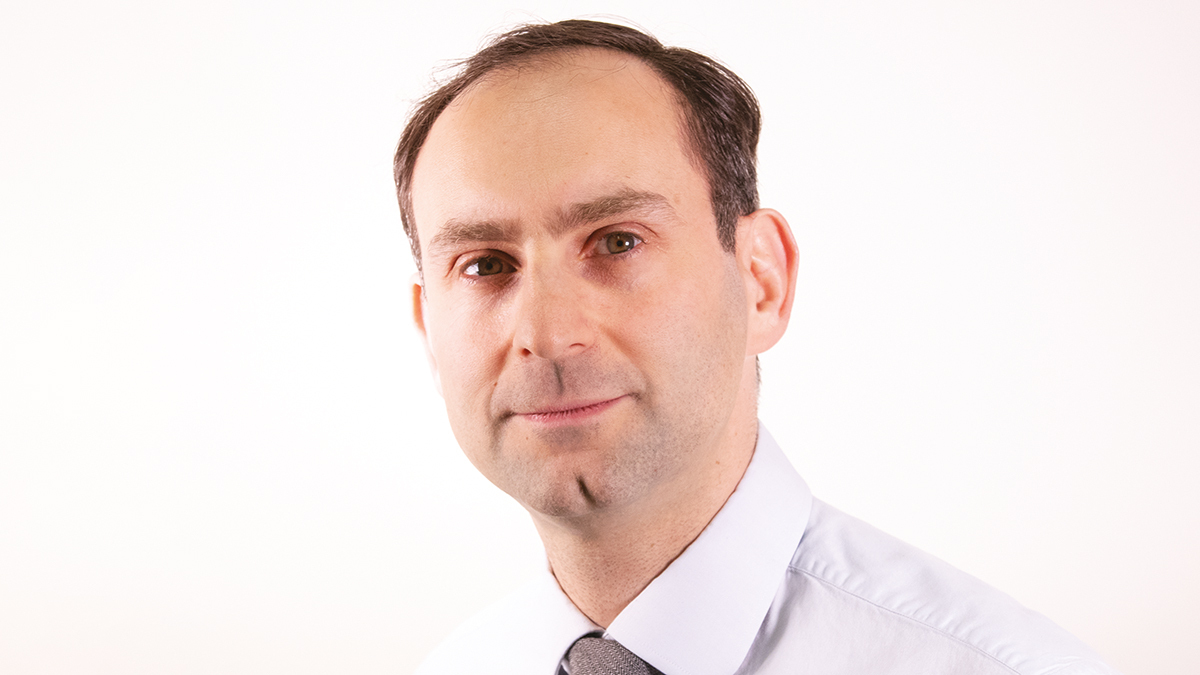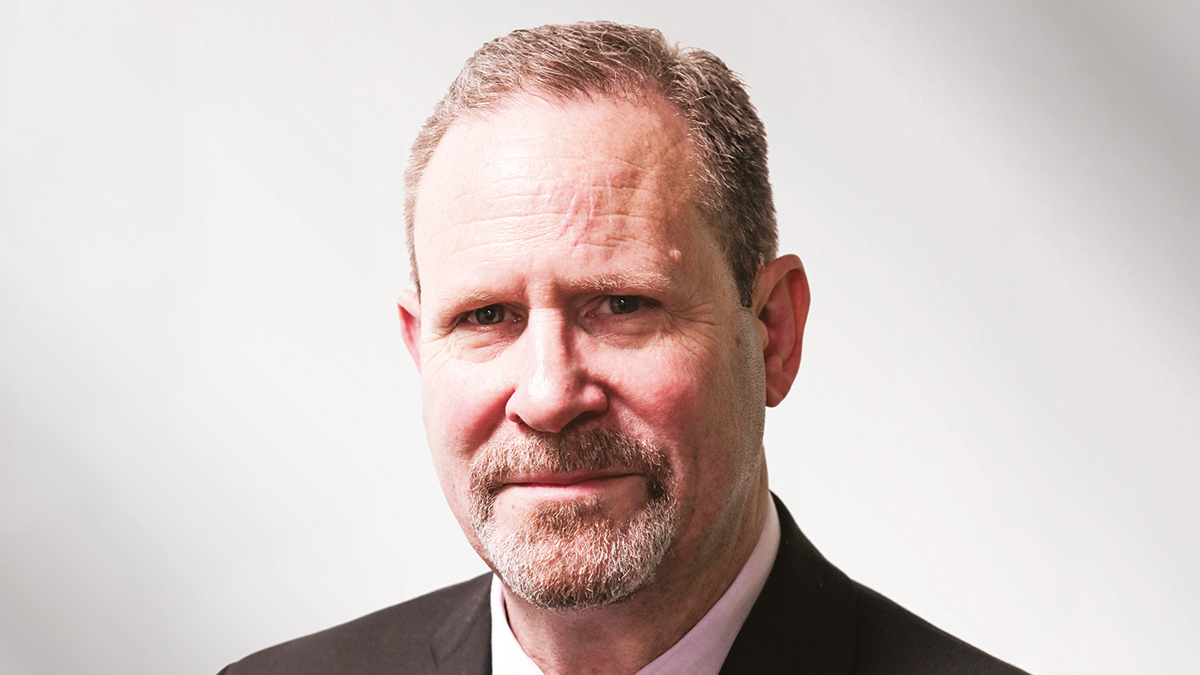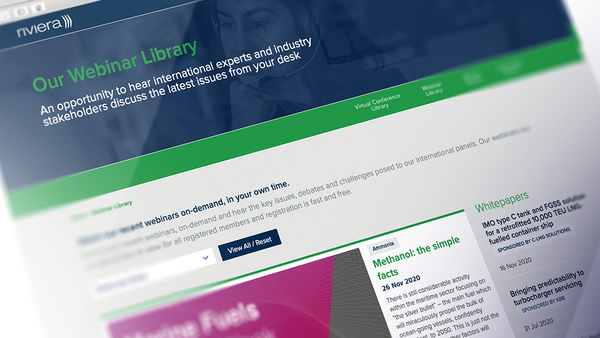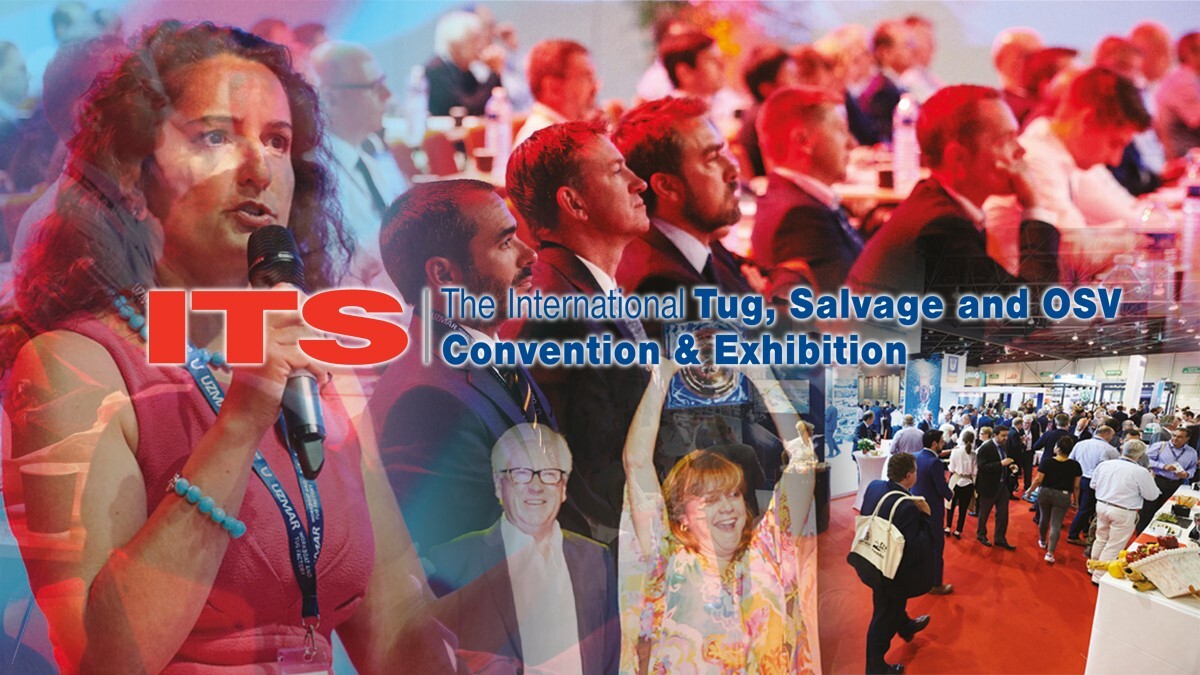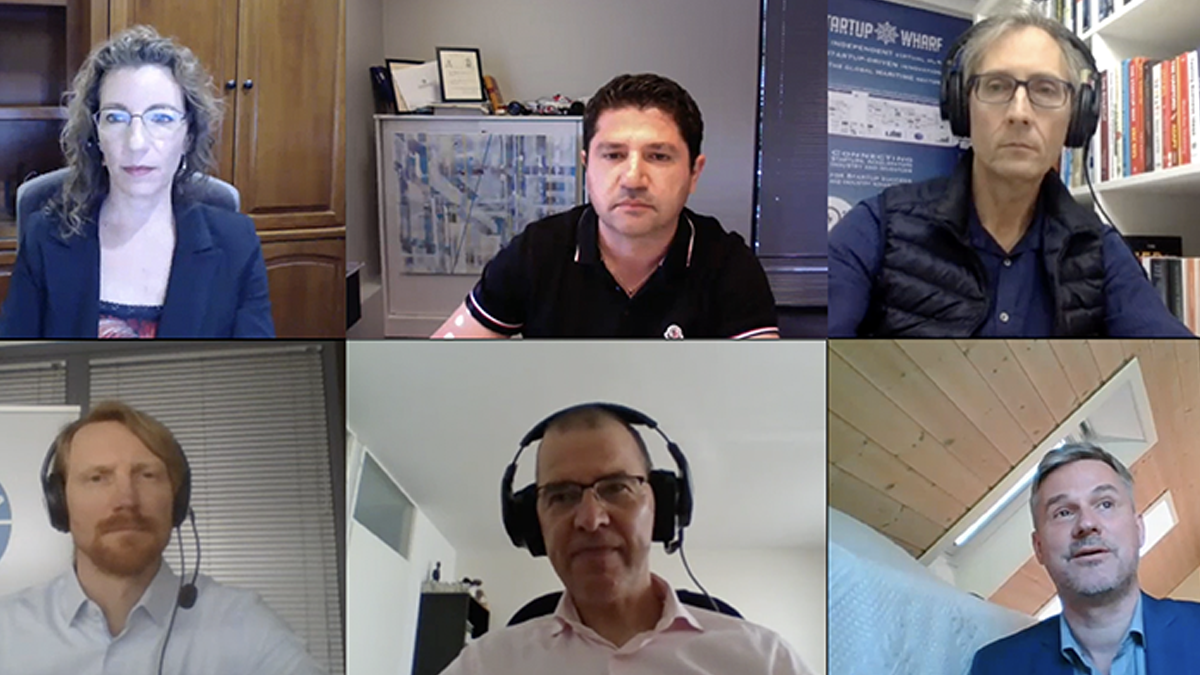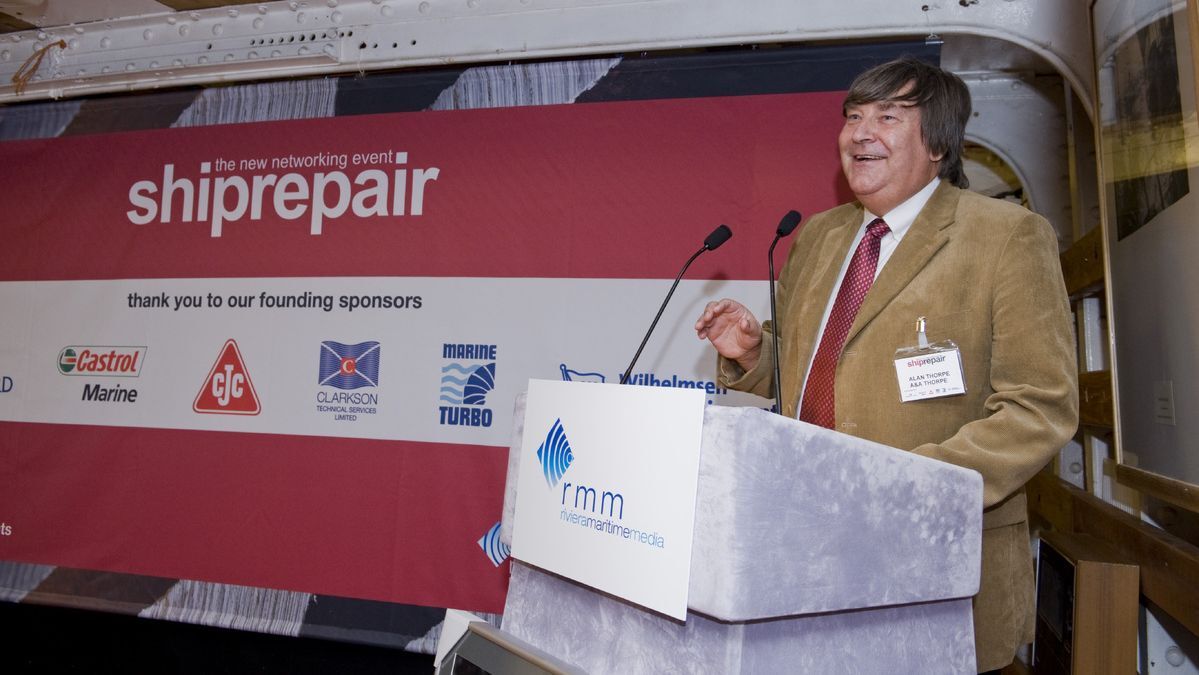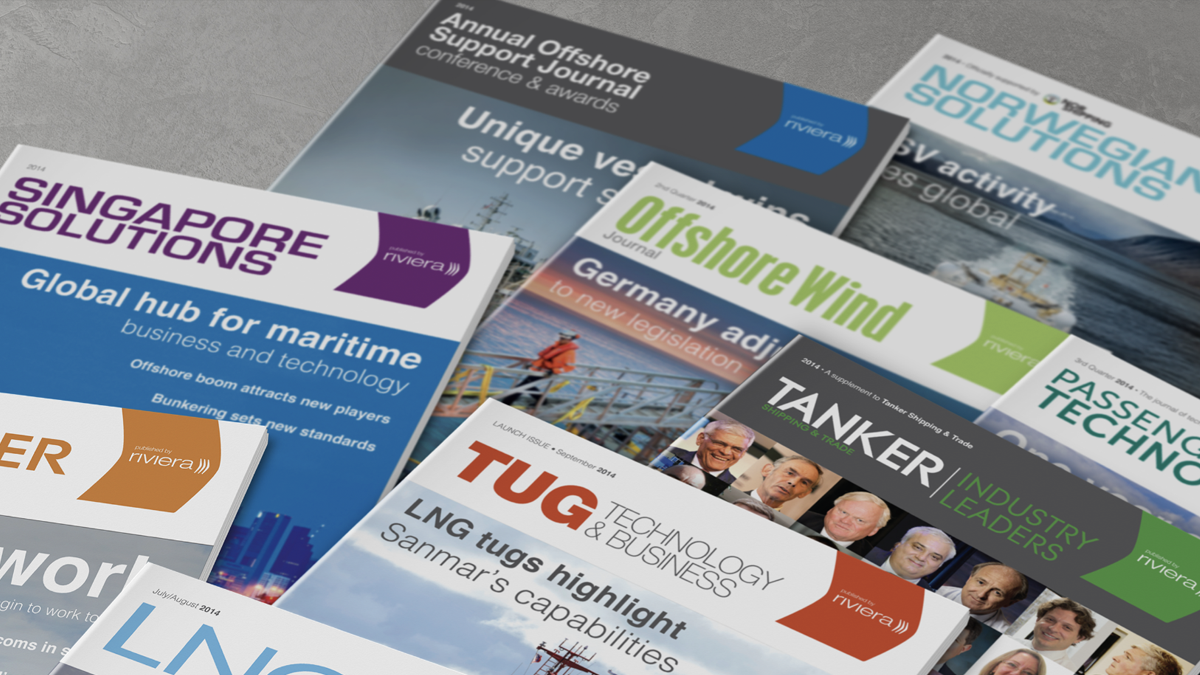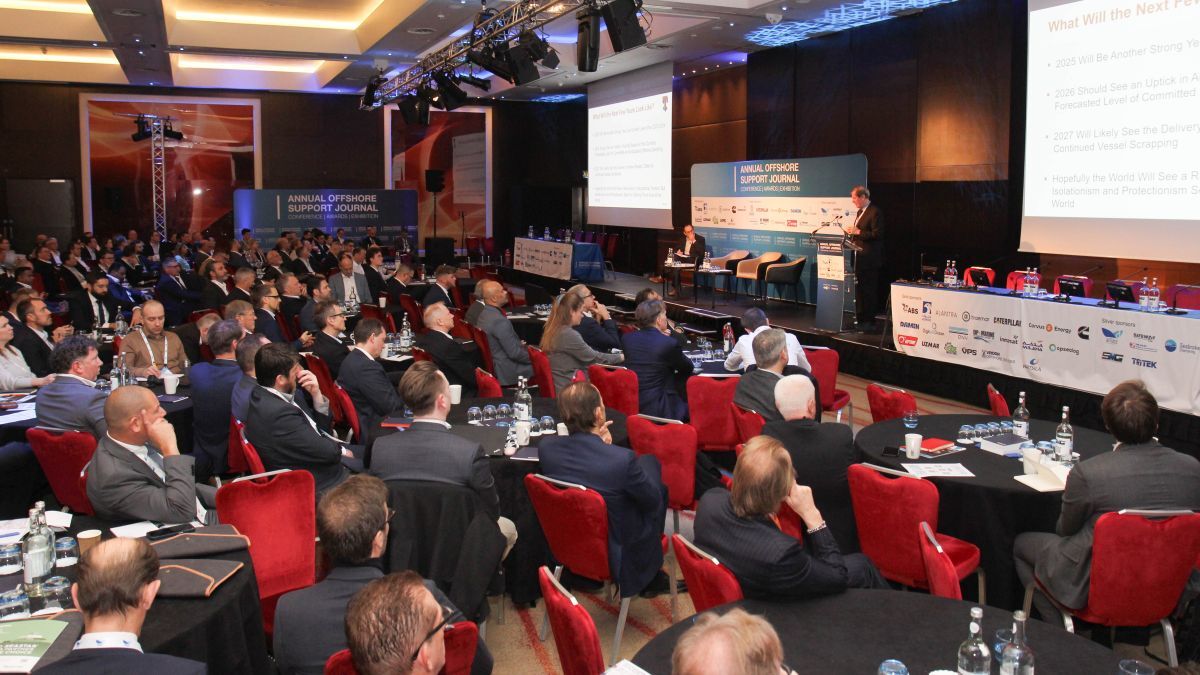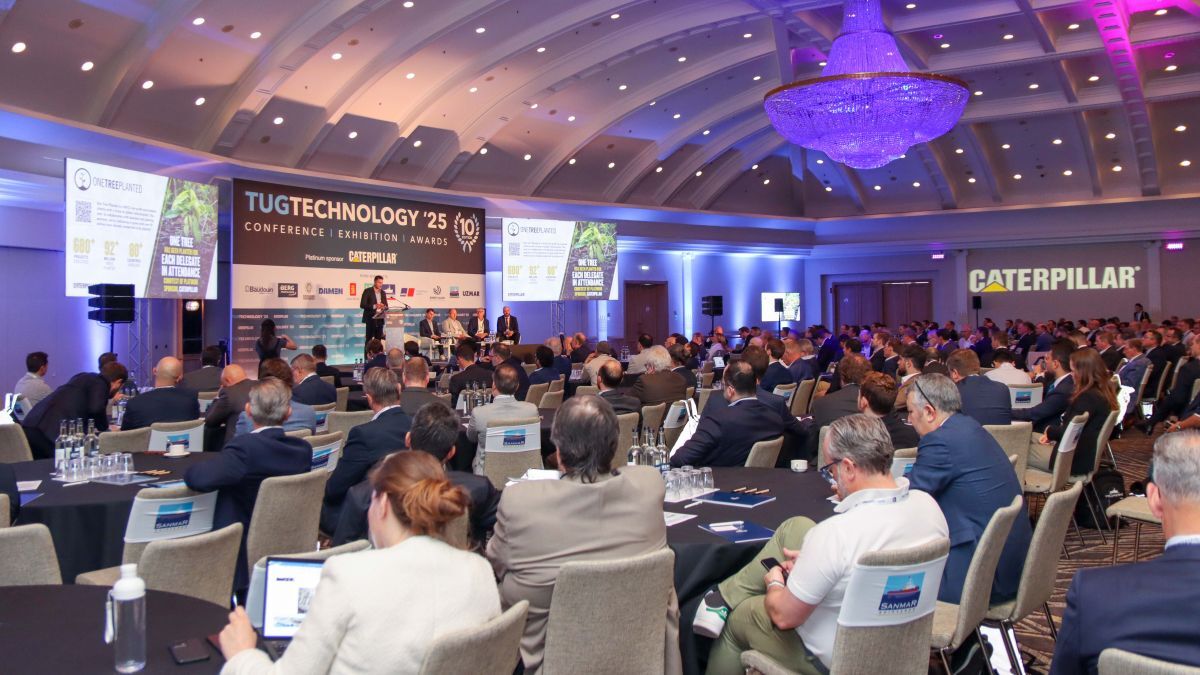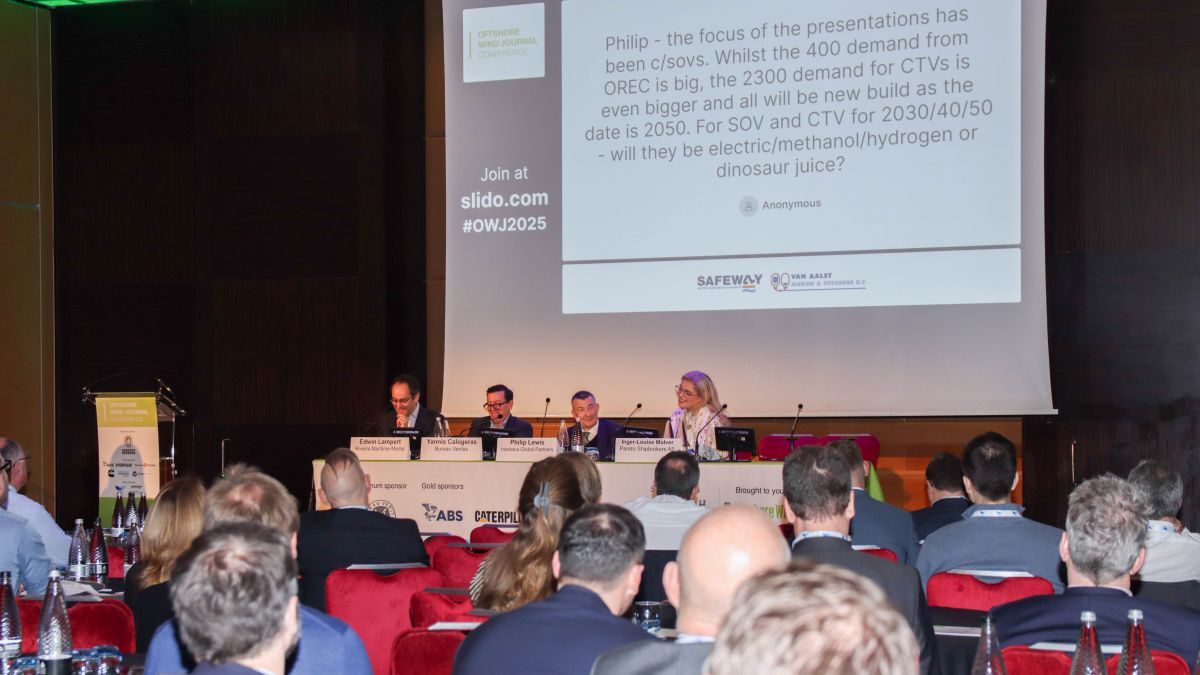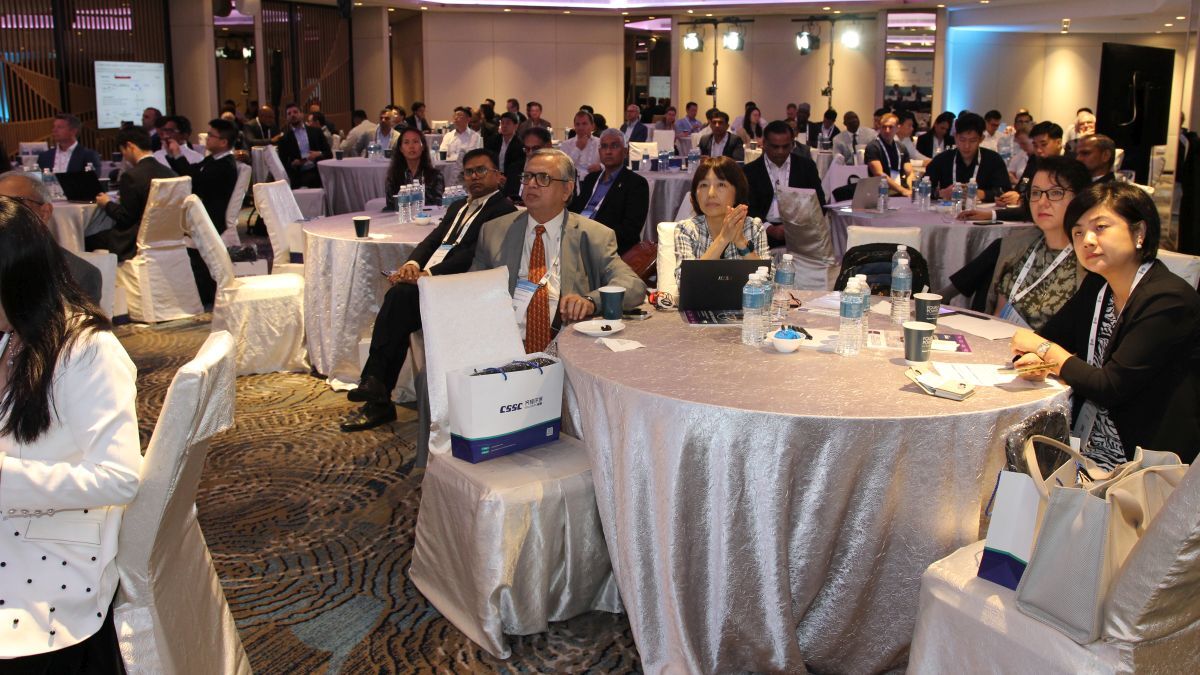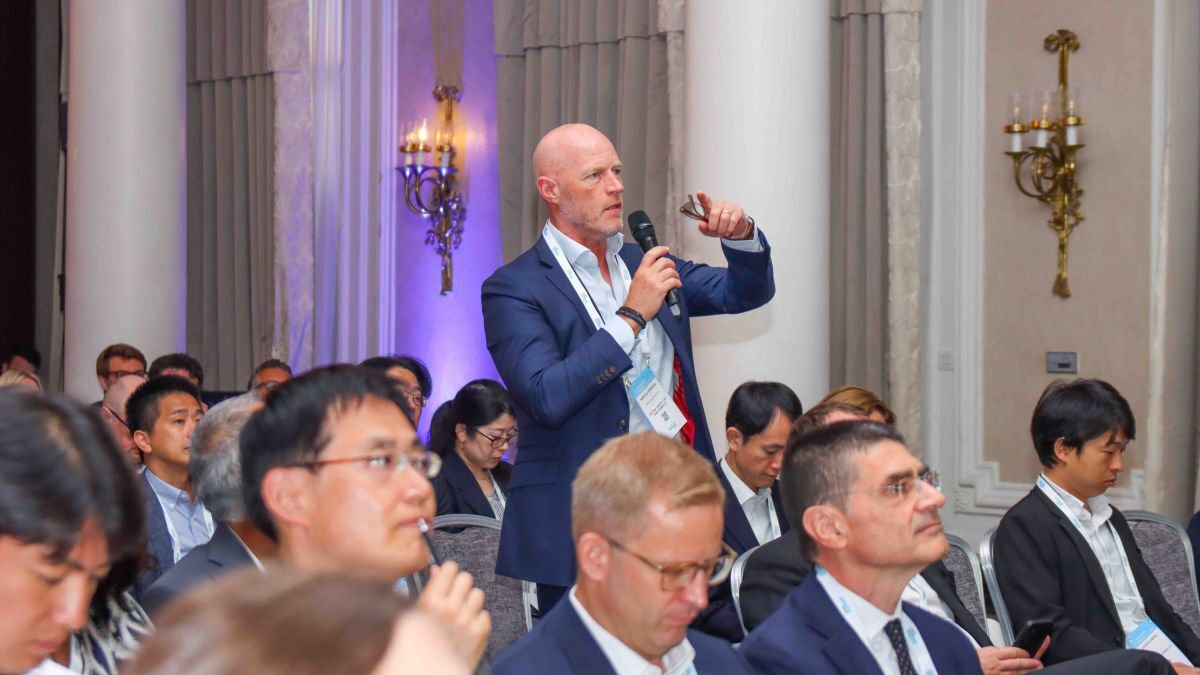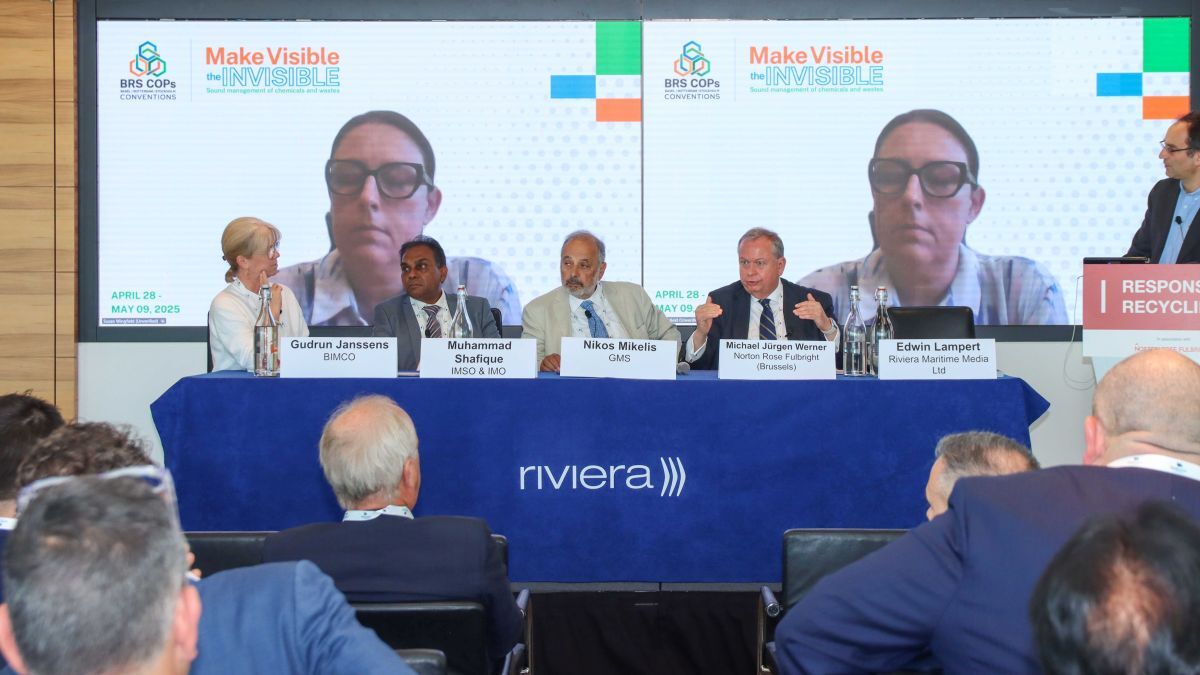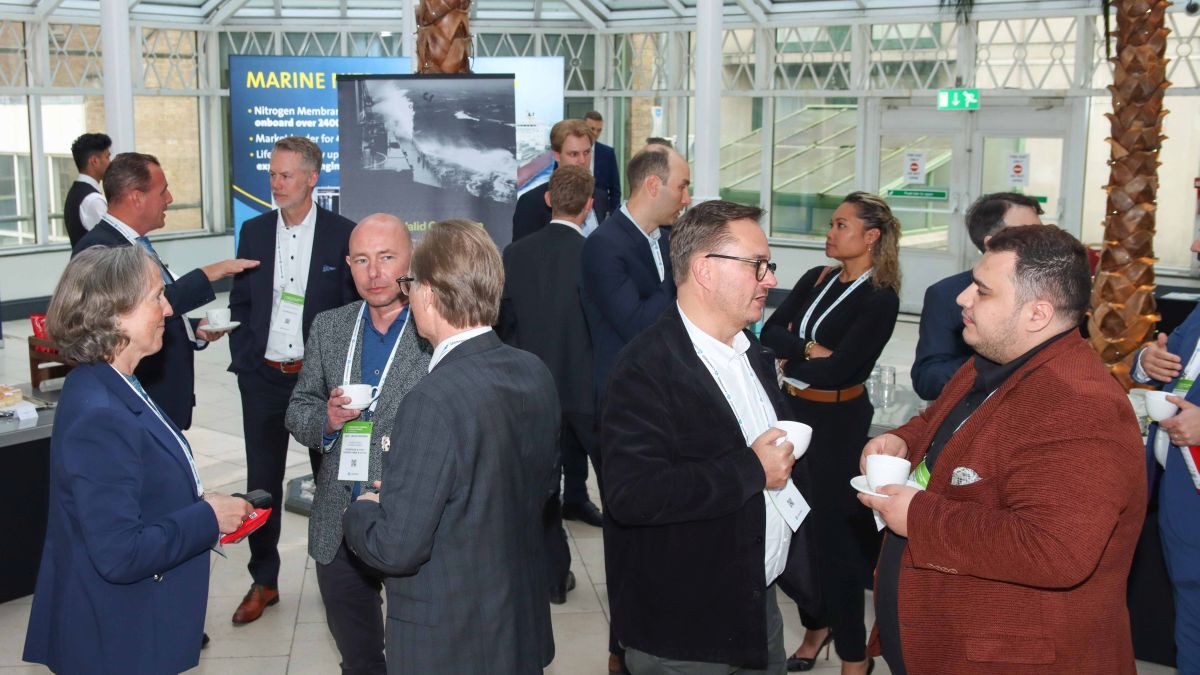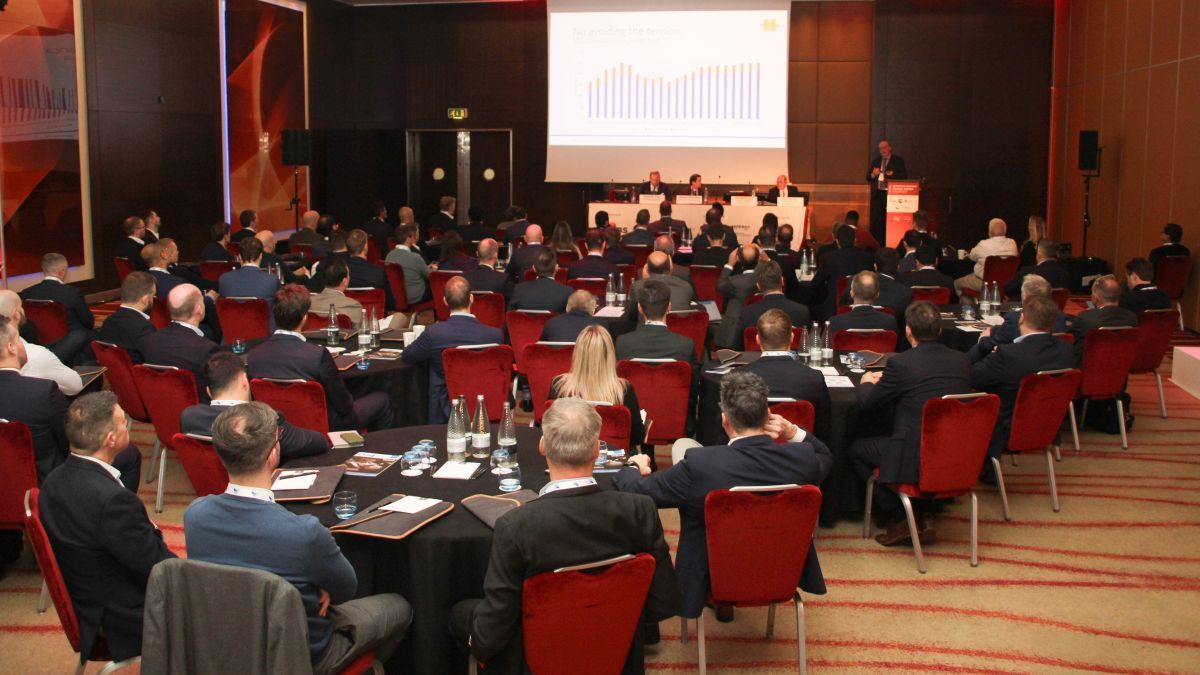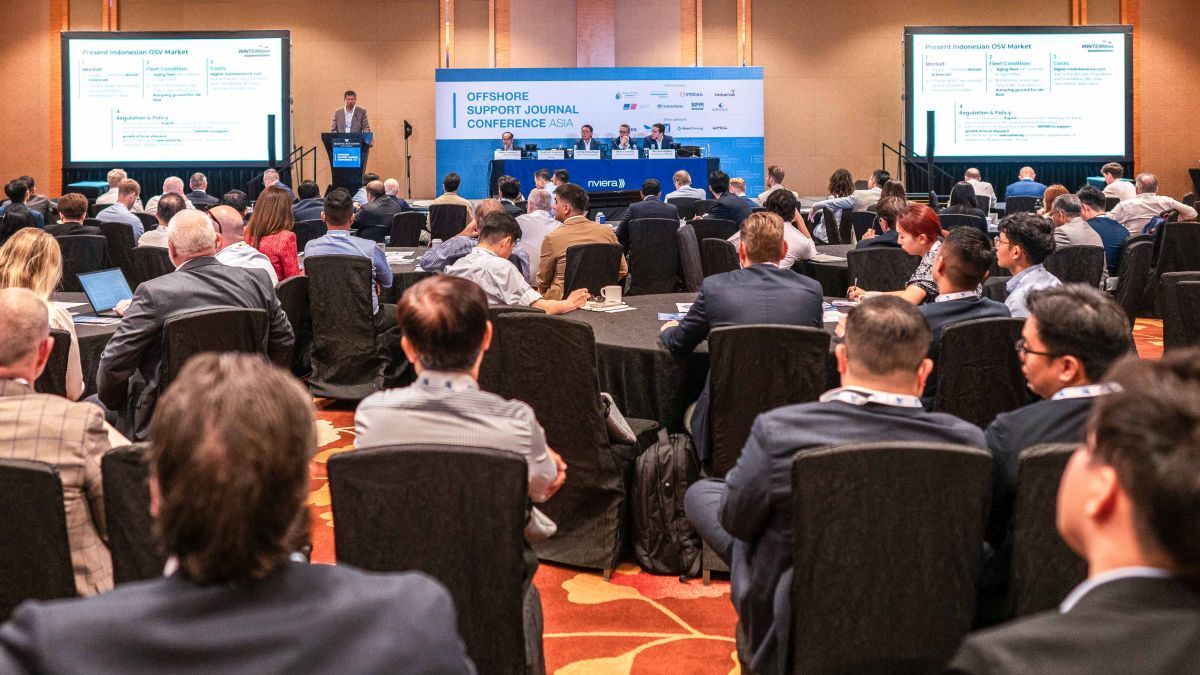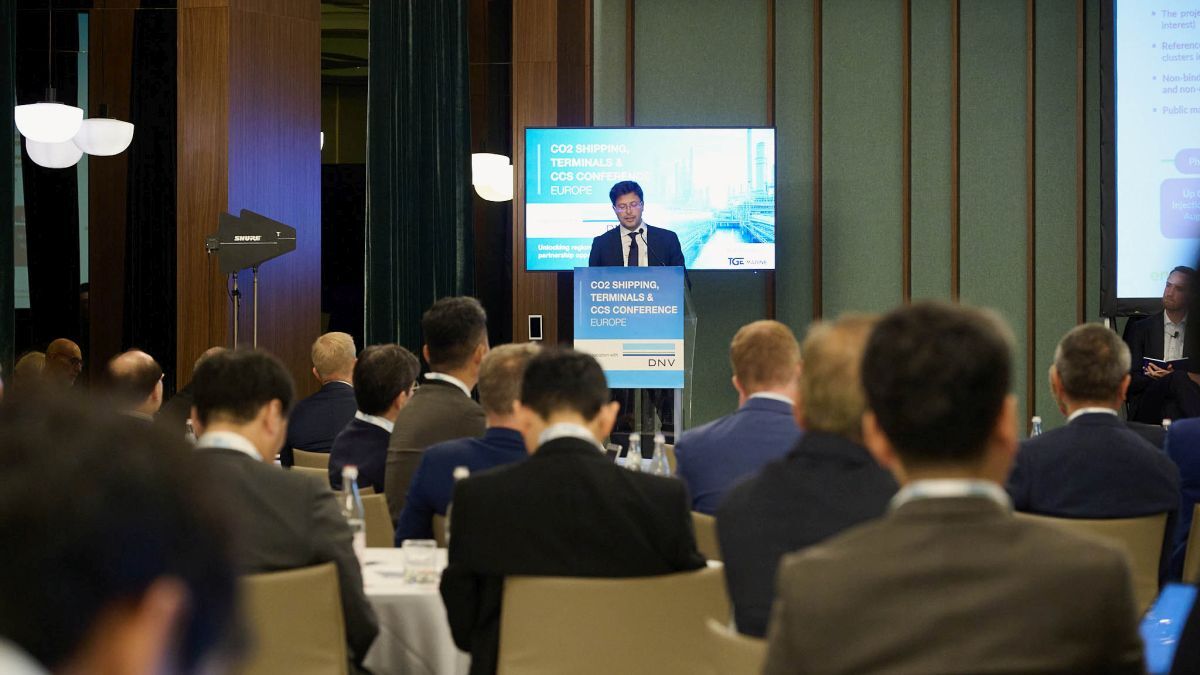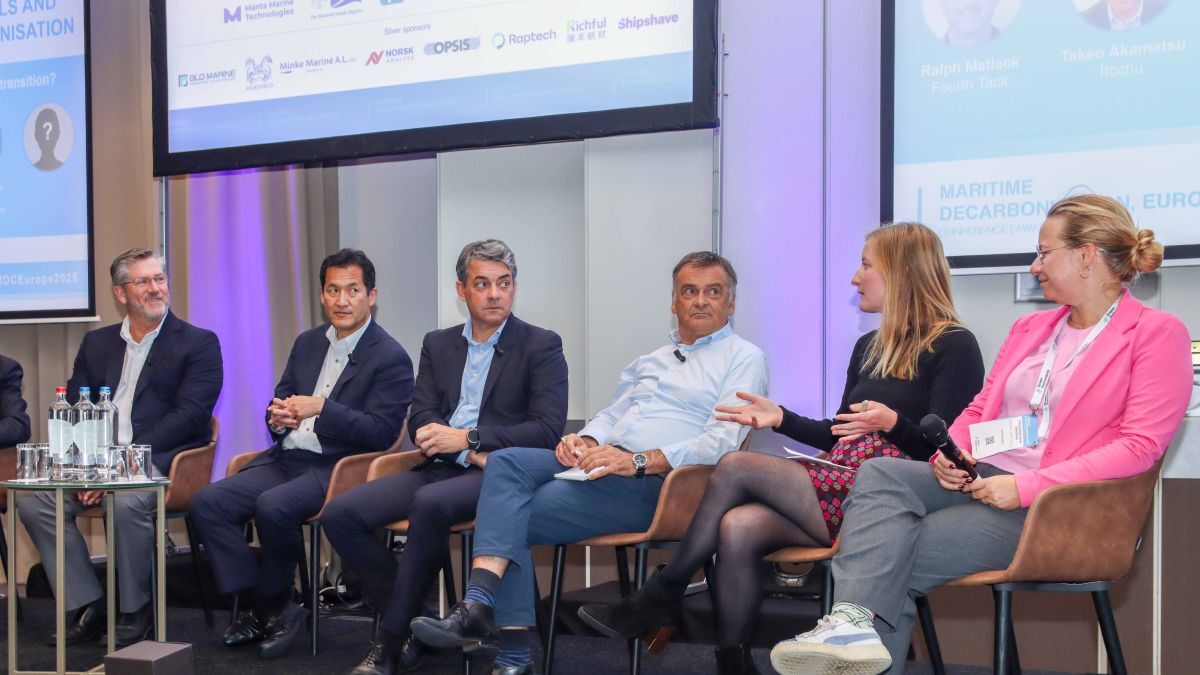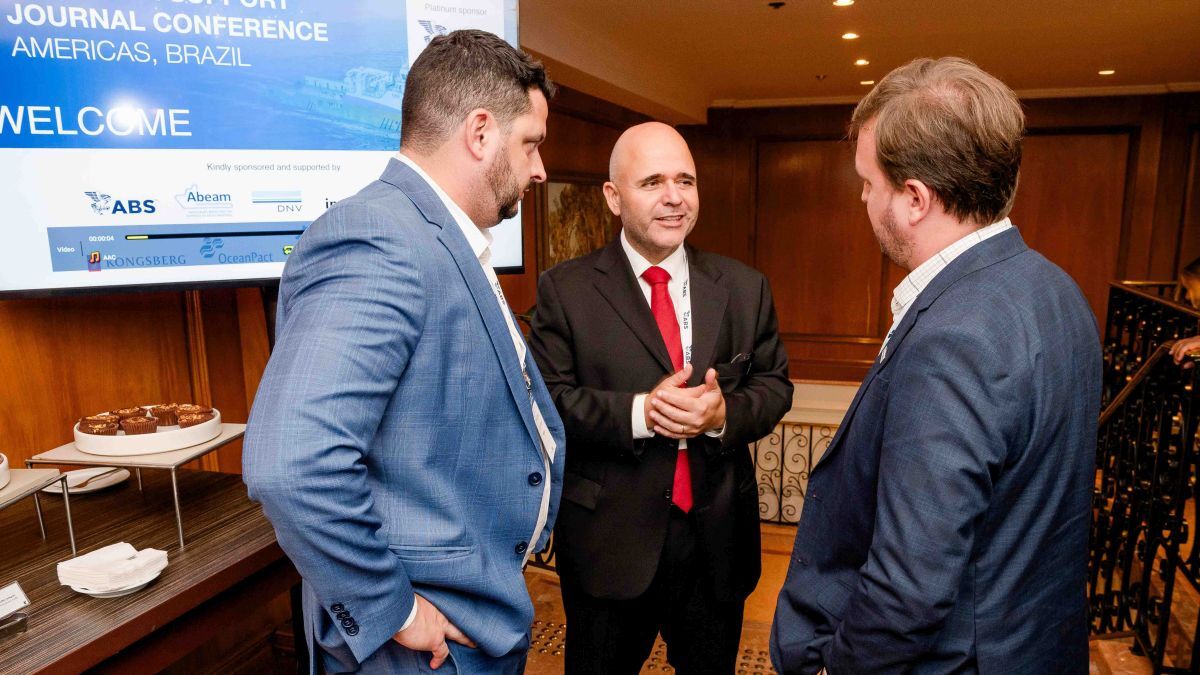Business Sectors
Contents
Where industry commitment met practical solutions
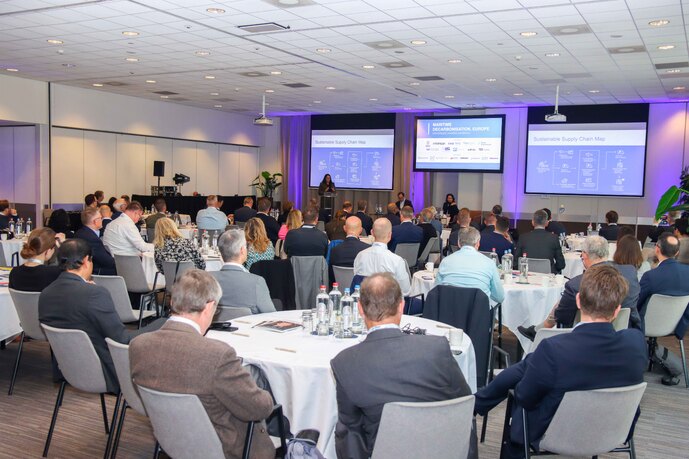
September’s Riviera Maritime Decarbonisation Conference in Amsterdam cut through regulatory fatigue and fuel uncertainties to reveal clear, actionable paths forward. Over two intense days, delegates spanning the worlds of chartering, vessel ownership, class, consultancy, legal, financial, consultancy, the supply chain and academia, didn’t just debate the shipping energy transition, they examined it in detail, highlighting both the sector’s significant strides and pathways ahead.
The technical and financial challenge
The conference starkly highlighted shipping’s 920M tonnes of annual CO2 emissions. Torbjørn Rydbergh from Marine Benchmark presented sobering data showing the age distribution of the global fleet, with a significant concentration of vessels in the 10-19-year age range.
Elsewhere on the programme, the true cost of doing nothing was laid bare: a single 5,500-dwt Supramax bulker could face a staggering US$65M in total compliance costs between 2028 and 2045 just to meet IMO regulations — more than double what the vessel originally cost.
Yet optimism shone through: AIT Worldwide Logistics showed that switching to sustainable marine fuels adds just pennies per product transported, while Petrobras demonstrated its B24 bunker fuel is already in use in Brazil and Singapore.
Regulatory focus centred on October’s critical IMO Net Zero Framework vote. Speakers warned that without global alignment, the sector risks a “mushrooming” of conflicting carbon pricing schemes. The Port of Le Havre’s collaborative model, combining hydrogen production, multi-energy stations, and onshore power supply infrastructure, offered a roadmap for integrated, systemic solutions rather than isolated efforts. There was much debate on fuel pathways including options seen as ‘no-go’ for now, drawing attention to the tough compromises shipowners face between ready-now and future-ideal technologies.
The human element
Relationships began forming well before the main event, with the preconference VIP harbour cruise on board the electric vessel The Rose setting the perfect tone.
Roundtable discussions broke down hierarchies. Shipowners openly admitted their cautious approach to technology suppliers, while port authorities acknowledged infrastructure delays to frustrated operators. The fishbowl panel’s rotating-chair format shifted attendees from passive listening to active engagement. The evening reception and the popular and convivial dinner and awards became working sessions where decarbonisation plans met potential collaborators, sparking practical discussions on real-world implementation.
Why being there matters
No video call could match the impact of Hydroflex’s live hydrogen demonstration. Attendees left with valuable contacts and insights and inspiration. Those who missed out lost the proof in the presence that transformation is underway: imperfect but unstoppable. The next installation in this global series of conferences takes place 22-23 January 2026 in the brand-new offices of DNV in Houston. For more information, please email tom.kenny@rivieramm.com
Upcoming Events
Maritime Hybrid, Electric & Hydrogen Fuel Cells Conference & Exhibition, 2025
LNG Shipping & Terminals Conference 2025
Vessel Optimisation Webinar Week
Marine Coatings Webinar Week
Maritime Environmental Protection Webinar Week
Ship Recycling Webinar Week
International Bulk Shipping Conference 2025
© 2024 Riviera Maritime Media Ltd.



